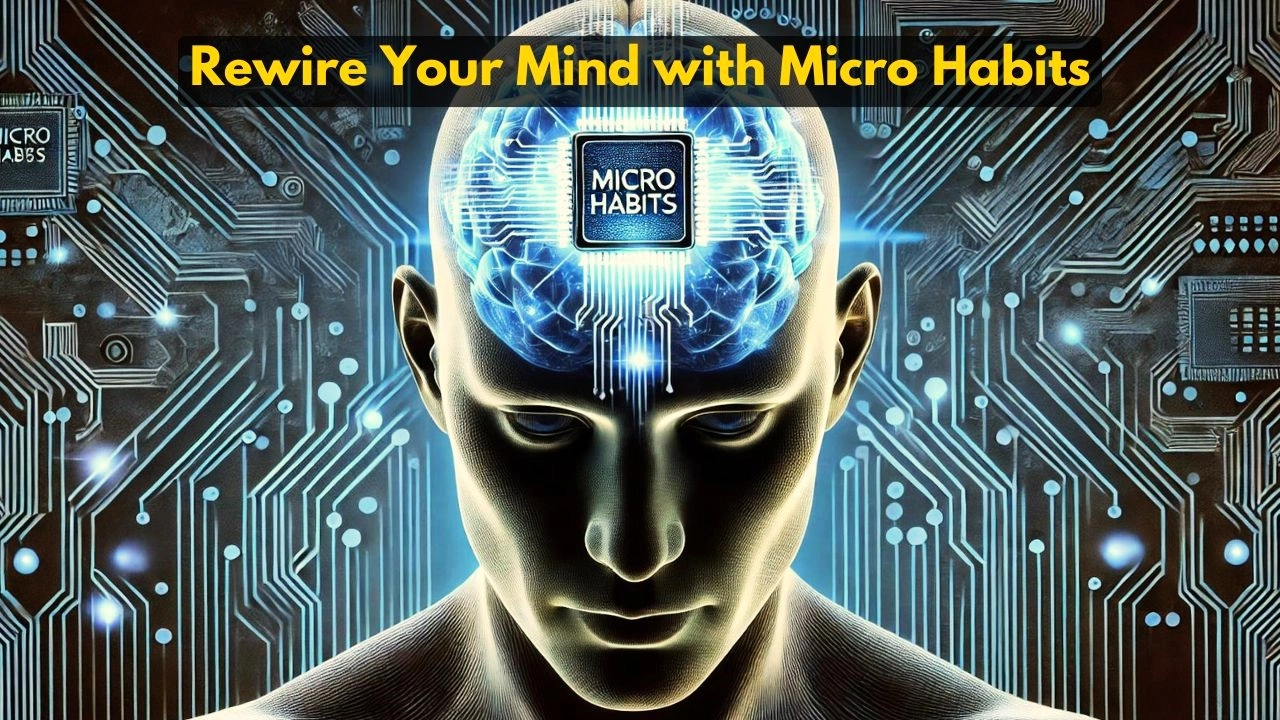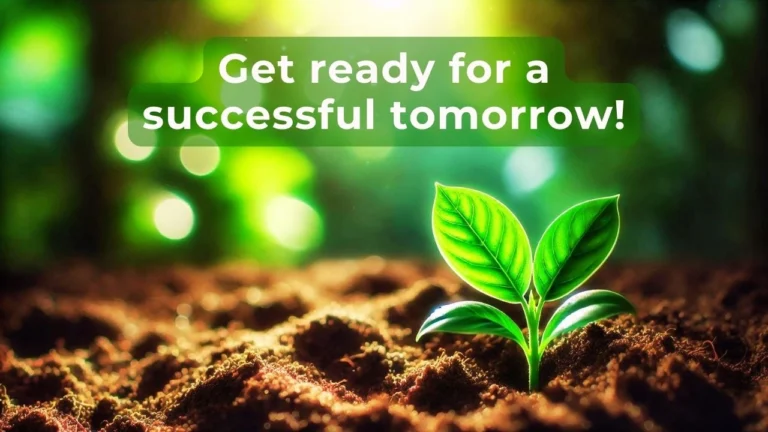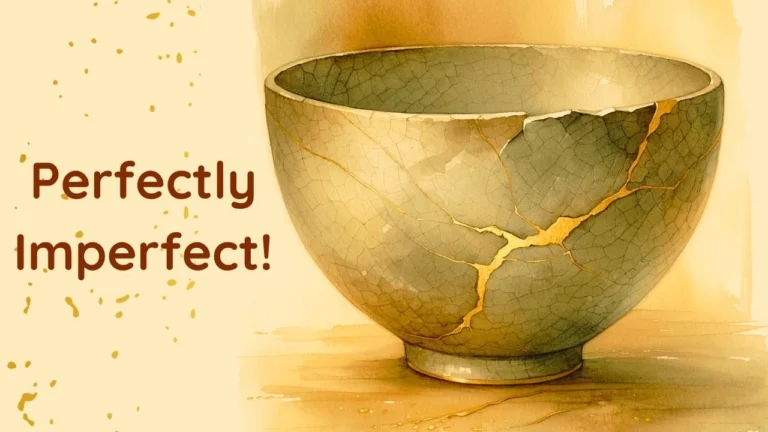Disclosure: Some of the links on this website may be affiliate links. As an Amazon Associate, we earn from qualifying purchases. The price you pay will be the same, but by using our affiliate links you are helping support our website. Learn more on our disclaimer page.
“Little by little, one travels far.”
J.R.R. Tolkien
Did you know that almost half of what we do each day happens on autopilot?
Research suggests that around 45% of our daily actions are driven by habits. These habits save us energy by making routine tasks easy.
In fact, most of them like brushing our teeth, drinking coffee in the morning, or checking our phones, are formed subconsciously. And because they happen without much thought, we almost never pay attention to them.
Small Habits, Big Changes
But what if we could take control of this habit-building process and consciously introduce small, purposeful actions or micro-habits into our lives? And bit by bit, day by day, these tiny actions could transform our lives and lead to something better and more meaningful?
I am not talking about big, bold resolutions we often set, like, “I’ll learn a new language fluently in 3 months” or “I’ll read 100 books this year!”. While these goals sound great, they often fizzle out quickly!
Instead, how about shifting our focus to small, easy-to-adopt changes that take little effort but, when done regularly, lead to significant improvements over time?
These are called micro-habits.
Now that we understand what micro-habits are, let us also look at the science behind them. And more importantly, how we can start using them in our everyday lives.
The Science Behind Micro-Habits
Micro-habits create a snowball effect in our minds. Initially, small actions may lead to only small wins. But over time, as we feel more capable, the size of our effort naturally increases and so do the rewards.
While researching this topic, I came across several interesting scientific articles that back this up. I will be sure to link them below.
But let me summarize the key learnings to explain the science behind micro-habits.
How Micro-Habits Work in Our Minds
We often struggle with forming new habits because we set big goals that are hard to keep up with using willpower alone.
Let me take a big goal like reading 100 books in a year. This would mean reading almost every day and finishing a book every 3 to 4 days just to stay on track.
I don’t know about you, but my mind is already resisting that thought and whispering, “With so much going on already, that is just impossible!”
Overcoming Resistance with Micro-Habits
Micro-habits help overcome this resistance by being so small that they hardly require any effort.
They reduce what is called the cognitive load, which is the amount of mental effort needed to get something done.
So, instead of aiming to read 100 books in a year, you can start with a micro-habit of reading just one page a day.
Every time I finish reading that one page, my brain releases a feel-good chemical called dopamine. This makes me feel good about the minor accomplishment and encourages me to keep going.
As I get used to reading, and start enjoying the process, I will naturally want to read more! And while I may not finish all 100 books that year, I will surely enjoy the process and feel happier. Isn’t that what matters the most?
So, as you can see, small habits, are easier to stick to. And once they become a part of your routine, you can gradually build on it.
Practical Examples of Micro-Habits

When I first started, I too looked online for examples of micro-habits that I could implement in my life. I came across things like making your bed, having a fruit a day or creating a task list.
My first micro-habit was drinking a glass of water as soon as I woke up. Believe me, it was quite easy to set, and I have been doing it for more than three years now. This small habit helps me feel refreshed as soon as I wake up.
Over time, I experimented with new ways to implement micro-habits. Here are six of them that are small, simple mindset shifts and have helped me tremendously over the years.
Name Your Emotions
Whenever I am feeling anxious or frustrated, I pause for a moment and try to name the emotion.
It is harder than it sounds but helps me create some distance and manage my feelings better. It also helps me shift my focus from simply reacting to my emotions to understanding them better.
The 1-Minute Rule
If a task takes less than a minute, like replying to a short message or sending a quick email, I do it immediately. This keeps me away from unnecessary mental clutter.
Keep the Phone Away at Meals
I leave my phone in another room during meals to help me eat mindfully. I can tell you, the food tastes much better, as I am no longer distracted. It also gives me a much-needed break from screen time.
The 5-Minute Declutter
I spend 5 minutes a day tidying up one small area, like my work desk or a corner of the living room. A little declutter each day helps prevent a bigger mess down the line.
Check-In with Your Body
A few times during the day, I do a quick mental scan to see if I am holding any tension in my body.
I try to notice if I am clenching my jaw or tensing my legs. I then make a point to relax those areas. This hardly takes a minute but is always sure to relax me.
The 5-minute gratitude
At the end of each day, I think of just two things that I am grateful for. I then jot them down in a journal. This helps me appreciate the good moments during the day that may have otherwise gone unnoticed.
I am not suggesting that you start all of these at once. Just pick one or two that appeal to you and fit your goals and get started!
The idea here is to start small and think big!
A Bonus Tip
A few years ago, I read the book Tiny Habits: The Small Changes That Change Everything, by Dr. BJ Fogg.
In this book, he explains the two key principles of anchoring your habits and celebrating success. I found both of them especially useful.
So, let me briefly share what these principles are.
- Anchoring Your Habits: Simply put, the idea is to link new habits to existing ones, called “anchors.” For example, I do the 5-minute declutter just before going to bed, as bedtime is already a part of my routine. This makes the new habit easier to remember.
- Celebrate Immediately: After completing my tiny habit, I make it a point to mentally pat myself on the back and say something as simple as “Good job!” or “Well Done!” This helps reinforce the habit and makes you more likely to stick to it.
Don’t just take my word for it, give it a try and see the magic for yourself!
Suggested Reading
Here is a list of some interesting books and research articles I found while researching for this post. I think these will give you a deeper understanding of the topic, and I would recommend checking them out.
Research Articles:
- “The Science of Habit” by David Neal
- “Making health habitual: the psychology of ‘habit-formation’ and general practice” by Benjamin Gardner
- “The Power of Small Wins” by Teresa M. Amabile and Steven J. Kramer
Conclusion
We’ve explored what micro-habits are, how they work, and how they can create lasting change. The key takeaway is that we don’t need to rebuild our lives overnight.
Instead, we can take small, consistent steps to create meaningful progress.
One of my favourite quotes by Robert Collier sums this up beautifully:
“Success is the sum of small efforts, repeated day in and day out.”
I would also like to challenge you to start with one micro-habit this week. Share your experience with me in the comments and let me know how it’s going.
With that, let me thank you for taking out the time to read this article. If you enjoyed this post, please share it with friends and family.
I look forward to seeing you in another post soon!
- Micro-Habits: How Small Changes Lead to Big Results - October 19, 2024
- Self-Doubt: How Impostor Syndrome Silently Steals Confidence - September 19, 2024
- Responding vs. Reacting: 4 Zen Lessons from the Poisonous Arrow - August 19, 2024





I really look forward to your new posts, keep writing and inspiring!